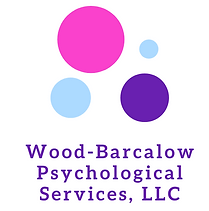-
Call: (614) 392-7975Call: (614) 392-7975
-
470 Olde Worthington Road Suite 200 Westerville, Ohio 43082470 Olde Worthington Road Suite 200 Westerville, Ohio 43082
Family-Based Treatment (FBT)
What is Family-Based Treatment (FBT)?
Family-Based Treatment is a type of evidence based treatment for eating disorders. It was originally designed for treating adolescents with Anorexia Nervosa and has been extended for use with other eating disorders (e.g., Bulimia Nervosa, Other Specified Feeding or Eating Disorders). It is a type of family therapy in which the individual with an eating disorder and their family members participate in treatment together. Sometimes this treatment is referred to as the “Maudsley Method.”
What’s the purpose of Family-Based Treatment?
To promote recovery from an eating disorder that includes both the identified client and supportive family members. This treatment can be initiated with the goal to offset a higher level of care (e.g., Intensive Outpatient (IOP), Partial Hospitalization (PHP), Residential treatment (RTC))
What’s the philosophy for Family-Based Treatment?
- Present-focused. Treatment does not focus on trying to find underlying issue(s) or cause(s) of the eating disorder.
- Food is medicine.
- Family members join therapy sessions and assist with the recovery process including assistance with eating.
- Includes a “family meal” during session early in treatment.
- Therapists coach family members on how to identify their strengths and growth edges related to recovery.
Who is defined as family?
Family can be defined as biological family members, significant others, friends, roommates, and other supportive individuals who play a significant role.
How do I inquire about this service?
Call or email to schedule a free brief phone consultation to receive information about how Family-Based Treatment works. If it is determined that this service is appropriate and desired, all family members participating will be asked to join the initial appointment and ongoing treatment.
FBT is appropriate for those who:
Are willing to work toward recovery from an active eating disorder along with the assistance and support from family members.
Not intended for adolescents, adults and/or families who:
- Are currently involved in legal issues/disputes.
- Are required to participate in mandated treatment by other entities (e.g., legal system, schools/universities).
- Have current abuse within the family.
- Are involved in custody issues.
- Are experiencing financial disputes.
- Have significant trust issues.
What can I expect during family based treatment?
- Coordination with medical providers (e.g., pediatrician, primary care provider, psychiatrist, dietitian)
- Inclusion of family members/loved ones when indicated/desired
- Sessions last approximately 50 minutes
- Three phases of treatment
- Phase 1- loved ones assist with nutritional rehabilitation (which may or may not include weight restoration) and interruption of problematic eating behaviors (e.g., bingeing, self-induced vomiting, overexercise)
- Phase 2- gradually return control of eating back to client
- Phase 3- establish healthy identity and functioning
- # of sessions depends on various factors usually lasts around 20-25
- Wrap-up of treatment, review skills
- Booster sessions (if/when needed)
